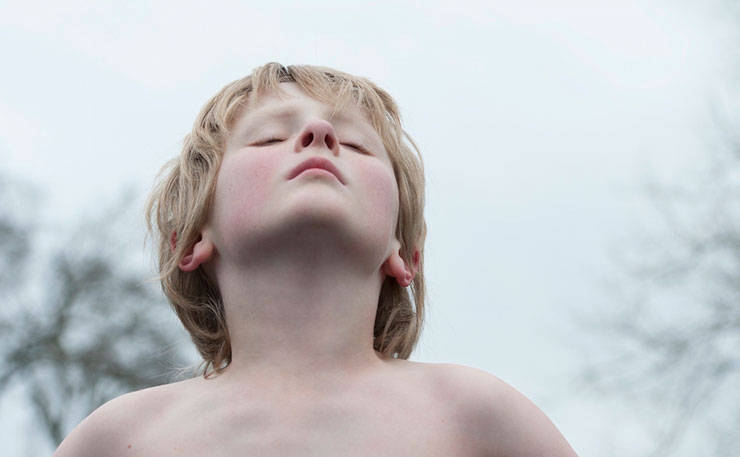Whatever the Daily Telegraph pays Piers Akerman to spread his unique brand of ‘commentary’, it’s not enough. So if you’re reading this Rupert Murdoch, double the man’s salary.
Akerman’s column this week attacking the independent Australian documentary, Gayby Baby – and the Tele’s complementary campaign of smearing shit all over itself and then grinning like a five-year-old – has done more than any hard working publicist could ever do to promote a film that every Australian should see.
Imagine what Akerman might have achieved if he actually watched Gayby Baby first, before publicly trashing it.
In case you missed it, Akerman’s column is here, and although I never imagined a situation where I would ever use these three words in this context: it’s worth reading. If nothing else, it’s an excellent way to gain a better understanding of how and why dinosaurs died out in the ice age.
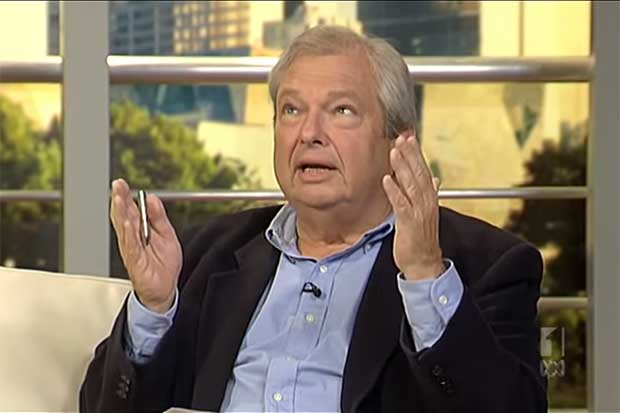
The central theme of Akerman’s manifesto is that left-wingers are forcing ‘gay’ onto unsuspecting Aussie families, and that Gayby Baby is an especially ‘politically overt’ brand of this brain-washing.
What outraged Akerman most is that it’s being done right under our noses, in our schools no less! His column attacked a plan to stage a special screening of Gayby Baby today at Burwood Girls High to mark ‘Wear It Purple’ day, when students dress up in support of all sexual identities.
In the wake of Akerman’s spray, that screening was cancelled by the NSW Education Minister Adrian Piccoli, and an edict was issued to all state schools banning the film from being played to students during school hours.
As I mentioned earlier, Akerman hadn’t actually seen the film when he wrote his column. I have seen it, last night in Newtown at a special advance screening at the Dendy.
Other than possibly expecting to spy Sharri Markson in the audience, bravely pretending to be a lesbian to bring us yet another heart-in-our-mouths undercover expose, I didn’t really know what to expect from Gayby Baby. All I had to go on was what Piers told me.
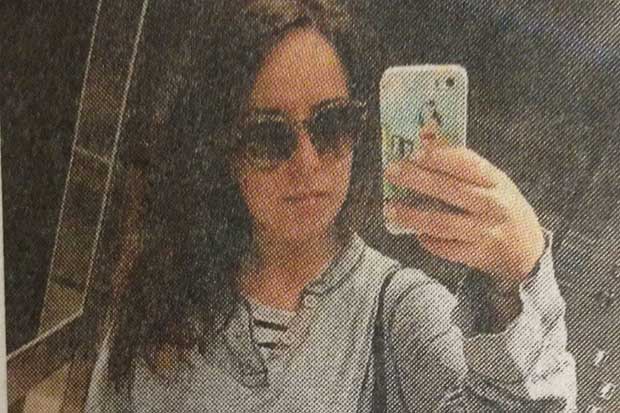
So you can imagine my surprise when it emerged that if there’s one thing Gayby Baby is not, it’s ‘politically overt’. That’s not to suggest it doesn’t set out to make a political point – it does. But from my perspective, that political point goes a little something like this: ‘move along, nothing to see here’.
Gayby Baby corners the bigotry directed at same-sex couples, and leaves it with absolutely nowhere to go. The argument that opponents to same-sex marriage have clung to with increasing desperation – ‘who will think of the children, won’t somebody please think of the children!’ – evaporates in the face of a film that reveals it’s the children who are doing the thinking for themselves.
The film so comprehensively demolishes the myth that same-sex couples harm children, that even a homophobe of Biblical proportions – and I mean that literally – will have trouble walking out of Gayby Baby not feeling like a bit of a dick (as opposed to feeling like a bit of dick… for those nervous men who watch the film, as good as it is, you’re still highly unlikely to ‘catch gay’).
So how does it demolish it? By being thoroughly unremarkable. Gayby Baby profiles four families made up of multiple kids, and same-sex couples. They love each other with the same depth and sincerity as ‘normal families’. They do the same stuff as ‘normal families’. They suffer the same bumps in the road, and enjoy the same small triumphs.
And that’s what’s so stunning about the film – apart from staring down national bigotry every day, their lives are otherwise extraordinarily ordinary. And yet at the same time, Gayby Baby somehow also manages to be possibly the most endearing and entertaining hour and a half of mundane Australian family life ever put to film.
What’s really unique and compelling about the film – and what makes it so engaging – is that while the parents obviously play an important role, most of the dialogue is from the kids themselves, and how they feel about life in a same-sex family.
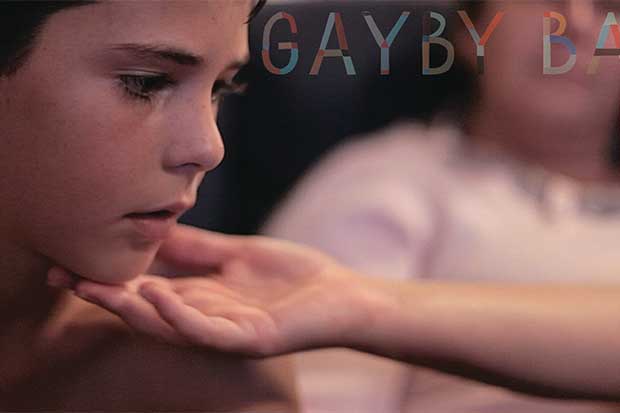
There’s Matt, an intensely introspective boy trying to get his head around why his mum’s church says she’s going to hell. And there’s Graham, a young adopted boy who moved with his two dads to Fiji, and is learning to read while navigating a brand new cultural custom. There’s Ebony, an aspiring young singer who wants to get into Newtown High, a selective performing arts school.
And then there’s Gus, a larger than life boy with two mums, with enough macho for his entire family (he’s obsessed with wrestling), and a ridiculously sharp wit.
That was, perhaps, the most surprising part about Gayby Baby – if I did expect anything from the film, it was that I might end up sitting through a slightly depressing film about pre-teen angst.
It’s not that at all. While the kids are clearly confronting a terrible situation – the bigotry and hatred directed at their parents, through them – Gayby Bay is frequently hilarious. Literally, hilarious!
If the audience reaction is anything go by, it’s also extremely uplifting.
After last night’s screening, two of the kids – plus the film-makers themselves, Maya Newell and Charlotte Mars – held a Q&A for the audience.
A young person in the audience described how, six months ago, they tried to take their own life. The young person explained how they went to a Catholic school where “they loved me but could never support someone like me getting married”. Needless to say, they were very grateful that Gayby Baby has been made. The young person wasn’t alone in the audience on that front.
The more pressing question, though, is not how it’s been received by people who’ve seen it (I imagine it will receive almost unanimous acclaim… it’s that good) but how widely will it be seen?
Gayby Baby may not be on the Australian schools curriculum, but it absolutely should be. And NSW schools may be banned from watching it during business hours, but other states aren’t. They should seek it out and play it to all their students as a matter of urgency, before other Murdoch tabloids join the hunt to chase it out of their state or territory.
Independent and private schools in NSW aren’t banned from screening Gayby Baby either – if those schools don’t act to make this film available to their students, then the parents who pay the fees should hunt their respective principals down and harass them until they do.
Unlike the claims of Akerman and others, Gayby Baby does not seek to brain-wash children in our schools. What it does is seek to provide is another layer of inoculation against bigotry. Surely that should be the goal of every educational institution, and every parent?
And surely every school and every family should be aiming to raise their kids in an environment awash with tolerance? The sort of tolerance not just on display in the film, but on display in last night’s Q&A after the screening.
And on that front, the last words really do belong to the kids. Ebony, now aged 16 (12 in the film), was on hand after the screening to take questions from the audience, in this case, about how the film has impacted on her life.
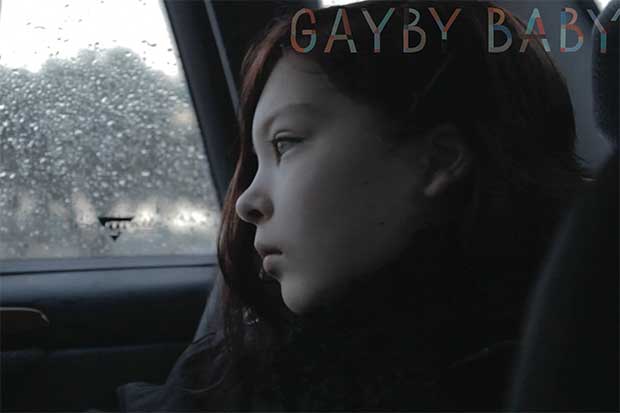
“A long time ago it was really important to me that my family was normal,” Ebony replied. “I was starting to get over it when (the film-makers) came into our lives. It’s important today that I can tell people about it, about this issue.”
And then Ebony pauses, and adds: “Actually, it’s not even an issue. My parents just want to get married. I don’t know what the big deal is.”
Finally, there’s Seth, Ebony’s little brother, who played a small part in the film, but also took questions from the audience last night.
Seth was asked to reflect on what it was like growing up with same-sex parents, so he told the story of sitting through a scripture lesson in school, at about the age of 5.
“They were telling me in class that my parents are a sin against God. I was just really confused. I didn’t understand,” Seth said. “My mum went and had a talk with the principal. Oh, and I got a bowl of ice cream.”
And then there was this, on what Seth liked about the film: “It gives me a chance to stand up and say its okay, and that’s important to me.”
And this: “I’d rather be different and be happy with my family than the same as everybody else, and not happy with my family.”
And then, this… after the audience member shared the story about contemplating suicide.
“You deserve a sticker,” responded Seth, whereupon he jumped off the stage, ran up the stairs to the back of the theatre, handed over the sticker, and gave the young person a hug.
They say that how our kids behave says something quite profound about how we are as parents, and I left the Dendy last night figuring that Ebony and Seth’s two mums must be really beautiful people.
But more than that, I left wondering what Piers Akerman’s parents were like, and how he, as a fully-grown adult, might have handled the same situation.
DECLARATION: There are ads appearing on New Matilda promoting Gayby Baby. The ads are not paid – we’ve donated them because we believe the film is important. If you want to help support that, you can subscribe to New Matilda here, or you can donate here. And if you want to supoprt the film, you can find out about future screening dates of Gayby Baby by clicking on the ads.
Donate To New Matilda
New Matilda is a small, independent media outlet. We survive through reader contributions, and never losing a lawsuit. If you got something from this article, giving something back helps us to continue speaking truth to power. Every little bit counts.

